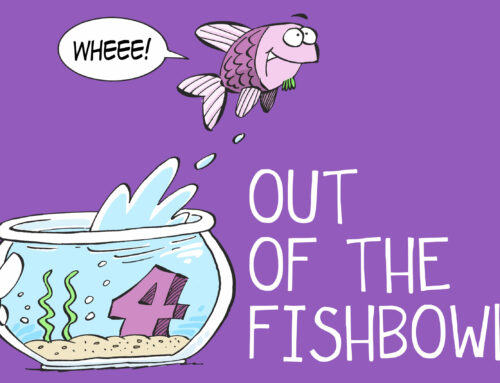There is a beautiful story in the Jewish Scriptures of Moses leading the Israelites out of Egypt towards the Promised Land God had called them towards.
The Israelites were being seriously oppressed in Egypt and so God called on Moses to rescue them and lead them towards a place of refuge, safety and abundance.
Their journey ended up being a forty year ordeal through reasons of their own making, and despite continually turning against God and trying to do things their own way, God remains faithful to them.

At one point they are close to starving and they cry out against God for rescuing them from Egypt only to die in the desert. God’s response can be read in Exodus chapter 16:
4 Then the Lord said to Moses, “I will rain down bread from heaven for you. The people are to go out each day and gather enough for that day. In this way I will test them and see whether they will follow my instructions. 5 On the sixth day they are to prepare what they bring in, and that is to be twice as much as they gather on the other days.”
This is where it gets even more interesting:
17 The Israelites did as they were told; some gathered much, some little.18 And when they measured it by the omer, the one who gathered much did not have too much, and the one who gathered little did not have too little. Everyone had gathered just as much as they needed.
19 Then Moses said to them, “No one is to keep any of it until morning.”
20 However, some of them paid no attention to Moses; they kept part of it until morning, but it was full of maggots and began to smell. So Moses was angry with them.

Gather what you need – no more no less.
‘Those who gathered much did not have too much and those who gathered little did not have too little.’
This morning we were chatting to a good friend about Common Change – a really simple and amazing way to practice generosity with friends – and i got thinking about this story of Moses and the Israelites.
IF they decided to collect more manna than they needed, the next morning they would discover that their bread was maggot-infested.
In a manna of speaking
What a super successful way i would imagine to encourage people not to try to hoard, right? You do it once and lesson learned, surely. Twice maximum, if you were one of those people who thought maybe it was just a coincidence… but you would not try that crap a third time!
The thought and imagining i had this morning was how incredibly different the world might look if the Manna Conundrum was a reality for all of us with all our stuff:
- You have a holiday house that is used eight times a year? Maggots!
- You have a second or third vehicle that is rarely used? Maggots!
- Those savings you have put aside for a rainy day? Maggots!
- The food you have in your pantry or freezer that you could probably live off for a month? Maggots!
- Those clothes you haven’t worn for two years but which take up space in your closet? Maggots!
You get my point? And i’m sure you could give justifiable reasons as to why some of those things might be helpful and even necessary, but for the most part the idea of stockpiling things we don’t need and rarely use.
And especially for the super wealthy and super hoardy.
What if all of us gathered just enough? Not too much and not too little.
Do you think the world has enough to sustain the needs of the people? [once we cut out the greeds and wants and luxuries and comforts] Because i completely do.
What do i see in the mirror?
And while i would love to see this happen automatically in a way that would turn the world upside down, perhaps there are some things i can do now when it comes to my own life and the too much or too little that i am surrounded with.
- Val and i have already done this with our car. Used to have two, but then made a decision to have one. So much more inconvenient on occasion, but most of the time it actually works. And sometimes when it doesn’t we have a wider community that have been so gracious with their cars. Which has encouraged us to look for ways to lend out our car to friends who don’t have a car at times when we can do without.
- Clothes and shoes is an easy one – when last did you go through your cupboard and remove everything you haven’t touched in the last year? Or last two years? If you haven’t worn something for two years, chances are it is something you won’t be missing any time soon. This is one to revisit regularly. Imagine if we gave good clothes to people in need and not just the stuff we hate or is broken?
- We don’t have a holiday house, and i really struggle with the concept for those who do [especially if it remains empty most of the time]. While at the same time i have enjoyed using other people’s holiday houses when they have generously offered them to us, so some kind of tension there perhaps? But we have been able to offer the place we stay [which we rent so conversations with landlords happen first] to other people when we have been away for a week or longer. And we were able to do a bit of a house swap when the extra room benefited some friends of ours [although to be fair we got to be really close to the beach so huge win for us!]. How creative can we get with sharing or inviting others into our space?
- We have a food sharing plan with friends. i’m not sure this one even fits here but it’s a fantastic idea and you really should consider it. Every Monday for the last probably two months, we cook a meal for eight servings and then do a late night Russians-in-trenchcoats-with-briefcases food exchange on an abandoned pier [okay, normally one of us drives it over to the other – we live fairly close!] and each of us has four meals. This helps us to have to cook less and experience some flavours and tastes we don’t typically cook and it has worked out so amazingly [well, for us anyways, you’d have to ask them if they got short-changed!]
And whatever 5th point you have to add to the list [Please share some practices you have or are thinking of in the comments below!] because creativity is where it is at. How do we stretch our limited resources to cover more people? How do we extend our hospitality so that others might benefit? How might our excess become someone else’s enough?
How differently might we be forced to live if all of the extra we didn’t use today suddenly didn’t exist tomorrow [cos maggots!] and is there perhaps anything in there to encourage us to consider how we live today differently at all?
Please tell me what you think about all of this!







I’ve always wondered if these stories has to do with now as well. Look at guys like the Rothschild who they say control the banks and worth Trillions of dollars. They rocker fellers and them worth trillions. I don’t k ow exactly but ten of these guys is worth as much as the rest of earth. That is ridiculous.
Then you get these super hutech airplanes and weapons and other technology, but if you go to a hospital, you not guaranteed to have success on a simple operation. Why can’t we have this technology, I know it must exist. It could provide cheap and excellent medical to everyone. People could live to 120 and be relatively healthy without worries about early death and other diseases. Cures for all ailments.
If we could stop wars imagine what we could have. An amazing life for all. Even the rich wouldn’t be as rich, hey I’d be happy with a million, surely even a billion is enough for them to be happy? I just don’t get it.
The Vatican has archives where we can’t even see it. Why can’t we know this stuff?
So what I’m trying to say is this elite that run this world must be forced to release this technology and history so we can use it. I think they just want wars and strife.
School for 12 years study, then work 50 years and retire at what 70. I surely can’t, and there are many worse off.
I understand I am more privileged than many people as I’m fairly educated. But after 47 years of work, I’m still battling on. The energy is just not as it once was.
I used to be a researcher on history for a decade back in the 80s. Back the before the internet. Did you know that there seems to have been a big mudflood around 1800s. Huge amazing buildings buriedby mud. Look up Tartaria and the mudflood.
If we landed on the moon in 60s, that was 60 years ago but we did not return.
Is evolution real? Or not?
I think we’ve been lied to.
So after 65 years on earth I’m despondant and depressed. What was the point really.
I just hope I love long enough to see the release of these technologies, free energy and so much more.
Everyone looks to leaders but the real rulers are certain super wealthy families. Whatever we do we always are battling.
I wonder if social media can force these new ideas and medicines and technology out to the people as we have a right to know.
Could you post something asking people about tartaria? I feel as though it’s the key to our problems. They hid this section of history.
Thanks Charl, some really great questions indeed. To be honest, the older i get and the more technology advances, the more i doubt that moon landing thing. We could do this fifty years ago but not today? Very strange indeed.
i do think the wealthy and the powerful are holding on to technologies that could make the world easier for many more and we’ve heard things with electric cars etc where the oil/petrol companies squashed progress for years which makes a lot of sense. Just so awful that money and power dictate over common decency, humanity and compassion. Those people will have to answer one day.
On the flip side i’m not sure living to 120 is the best thing, especially with the overpopulation problems we already have – heal people when you can but let them die well at a decent old age of somewhere between 70 and 90 maybe [although i guess back in the day 35 was seen as old age so who gets to determine what is okay and not? Once we start keeping people alive with machines instead of letting them go that feels like a line to me]
It’s really just for the rest of us to try and live with love and compassion in our families and communities and make a difference where we can and hope that it will spread.
Have never heard about Tartaria but sounds like an interesting conversation. Not the kind of thing i typically blog about though but maybe for social media vibes?
All the best
Brett “Fish”
Hi guys
There are examples of old Tartarian architecture in Cape Town. It is incredibly strange that whole topic. Could the epic flood in the Bible actually have occurred around 1800 to 1840? Or are these floods cyclic and this was just another one? If you look at old photos of Tartarian buildings, the people have ox wagons and horse carts. How did they build such buildings with such a low level of technology. They were battling disease, famine and the elements yet we are told to belive they built that with ox wagon technology. Haha Then look at the ruins of Great Zimbabwe, the extensive knowledge of the stars of the Dogon tribes. We have certainly been lied to. There was also a huge west African empire, can’t rmemebr the name. The world deserves the truth now. And there is a lot more land than we are all lead to believe. A flight over Africa will tell you its vastly massive. Are we really overpopulated? Or maybe just condensed into cities. The Bible says to be fruitful and multiply? So all very interesting. Would love to see other people’s take on this. How to get this debate going? Thanks for listening. Maybe a Facebook discussion?